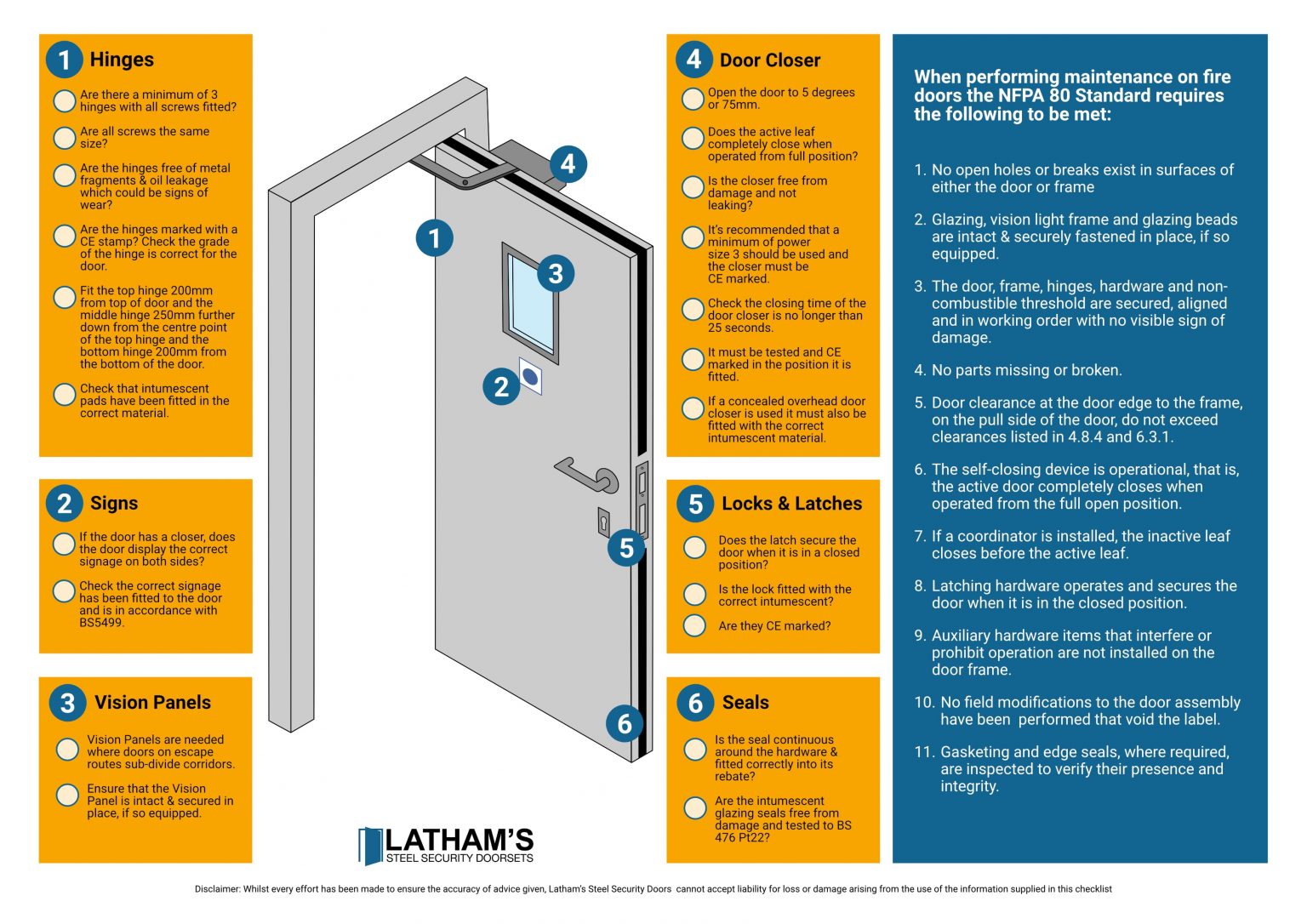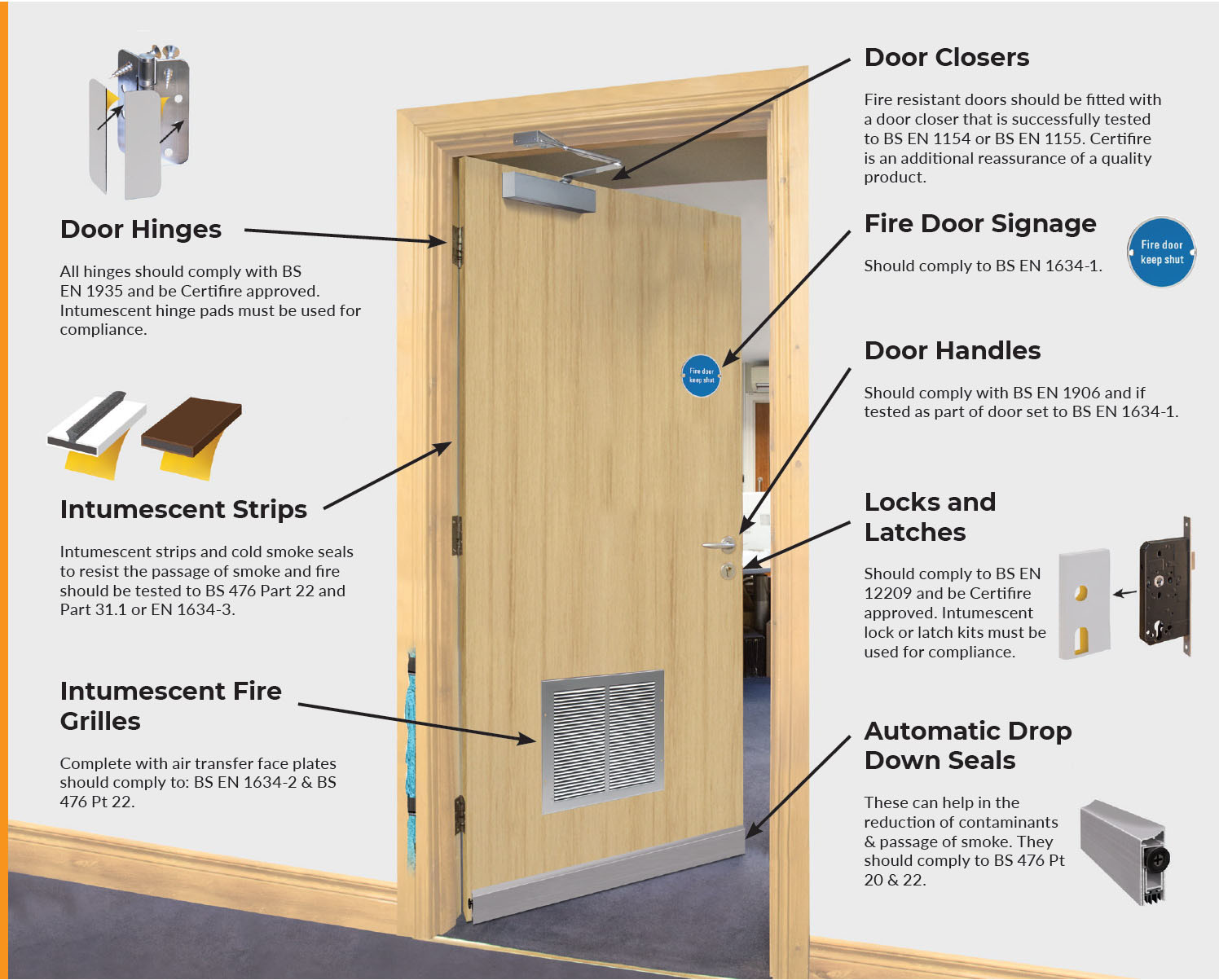Understanding Hotel Bedroom Fire Door Regulations

Imagine a scenario: a fire breaks out in a hotel. The guests need to evacuate quickly and safely. This is where fire doors in hotel bedrooms play a crucial role. These doors are designed to contain the spread of fire and smoke, giving guests precious time to escape to safety.
The Importance of Fire Doors in Hotel Bedrooms
Fire doors are a vital component of fire safety in hotels, serving as a critical line of defense against the spread of fire and smoke. They act as barriers, preventing the flames and toxic fumes from entering adjacent rooms and hallways, allowing guests more time to escape to safety.
Key Regulations and Standards
Fire doors in hotel bedrooms are subject to stringent regulations and standards to ensure their effectiveness in a fire emergency. These regulations are typically based on building codes and fire safety codes, which vary by jurisdiction.
- Building Codes: Building codes, such as the International Building Code (IBC) and the National Fire Protection Association (NFPA) Life Safety Code, Artikel specific requirements for fire doors in hotels, including their construction, installation, and maintenance.
- Fire Safety Codes: Fire safety codes, like NFPA 101, provide detailed guidelines for fire door design, installation, and testing to ensure their ability to resist fire and smoke for a specified duration.
Types of Fire Doors
Hotel bedrooms typically use various types of fire doors, each with specific features designed to meet the requirements of fire safety regulations.
- Solid Core Doors: These doors are constructed with a solid core material, such as wood or metal, providing excellent fire resistance. They are typically used in high-traffic areas and require minimal maintenance.
- Hollow Core Doors: These doors are made with a hollow core and are typically lighter and less expensive than solid core doors. However, they offer less fire resistance and may require additional fire-resistant materials to meet code requirements.
- Glazed Fire Doors: These doors incorporate fire-resistant glass panels, allowing for natural light while maintaining fire safety standards. The glass is designed to withstand high temperatures and prevent the spread of flames.
Fire Door Requirements and Features

Imagine a hotel fire. The flames are spreading, smoke is filling the corridors, and guests are panicking. In this terrifying scenario, fire doors become the silent heroes, protecting lives and slowing the spread of the inferno. They are not just ordinary doors; they are engineered to be fire-resistant barriers, buying precious time for evacuation and firefighting efforts.
Essential Features and Components, Hotel bedroom fire door regulations
Fire doors are meticulously designed with specific components that contribute to their fire-resistant properties. These components work together to create a robust barrier that can withstand the heat and flames of a fire for a specified period.
- The Door: Fire doors are typically constructed from solid core materials, such as wood, steel, or composite materials, providing a solid barrier against fire and smoke. The core is often filled with fire-resistant materials like mineral wool or gypsum board, enhancing its fire-resistant properties.
- The Frame: The frame is equally crucial, providing a strong and secure enclosure for the door. It is usually made of steel, offering superior fire resistance and structural stability. The frame is designed to withstand the forces of expansion and contraction caused by extreme heat during a fire.
- Hardware: The hardware, including hinges, latches, and handles, plays a critical role in ensuring the door’s proper operation and fire resistance. These components are specifically designed to withstand high temperatures and maintain their functionality even under extreme fire conditions.
- Seals: Fire doors are equipped with specialized seals that help prevent the passage of smoke and heat. These seals are typically made of intumescent materials, which expand and seal gaps when exposed to heat, effectively blocking the spread of fire and smoke.
Fire-Resistant Properties
Fire doors are not merely ordinary doors; they are engineered to resist fire for a specific duration, known as their fire rating. This rating indicates how long a door can withstand a standardized fire test without failing.
A fire door’s fire rating is determined by its ability to prevent the passage of heat and flames for a specified period, typically measured in minutes or hours.
For example, a fire door with a 30-minute fire rating will remain intact and prevent the spread of fire for at least 30 minutes during a fire test. This crucial period allows occupants to evacuate safely and firefighters to contain the blaze.
Inspection and Maintenance of Fire Doors: Hotel Bedroom Fire Door Regulations

Fire doors are crucial for containing a fire and protecting lives. However, their effectiveness relies heavily on regular inspection and maintenance. Neglecting these vital tasks can compromise the fire door’s integrity, rendering it ineffective in an emergency.
Inspection Procedures
Regular inspection of fire doors is essential to identify any damage or malfunction that could compromise their ability to perform their intended function. The following procedures should be followed:
- Visual Inspection: Conduct a thorough visual inspection of the fire door, looking for any signs of damage, such as dents, cracks, or warping. Check the door frame for any gaps or misalignment. Also, inspect the door’s surface for any signs of corrosion, peeling paint, or other damage.
- Operational Check: Ensure the door’s hinges are properly lubricated and the door swings freely without any binding or sticking. Test the door’s closing mechanism, making sure it latches securely and closes completely. Verify that the door’s self-closing mechanism is functioning correctly.
- Fire Door Components: Inspect the fire door’s seals, ensuring they are intact and free from damage. Check the intumescent strips and smoke seals for any signs of deterioration or wear. These components are critical for preventing the spread of fire and smoke.
- Hardware: Inspect the door’s hardware, including the handle, latch, and hinges, for any signs of wear or damage. Ensure the door’s panic hardware is functioning correctly.
- Fire Door Label: Verify that the fire door is labeled with the appropriate fire rating and certification. The label should be clearly visible and legible.
Maintenance Tasks
Regular maintenance of fire doors is essential to ensure their continued effectiveness. The following maintenance tasks should be performed:
- Lubrication: Lubricate the door’s hinges and other moving parts regularly to prevent rust and ensure smooth operation. Use a suitable lubricant that is compatible with the door’s materials.
- Cleaning: Clean the door’s surface regularly to remove any dirt, dust, or debris that could hinder its performance. Use a mild detergent and a soft cloth for cleaning.
- Replacement: Replace any worn-out or damaged components, such as seals, intumescent strips, or hardware, immediately. Do not attempt to repair damaged components as this could compromise the door’s integrity.
Record Keeping
Maintain detailed records of all fire door inspections and maintenance activities. These records should include the date of the inspection or maintenance, the findings, and any corrective actions taken. The records should be easily accessible for review by authorities.
Hotel bedroom fire door regulations – You know those hotel fire doors that slam shut with a loud clang? They’re actually a lifesaver, keeping smoke and flames from spreading. But imagine if your bedroom door was a stylish farmhouse king bedroom suite like this one , with a rustic charm that wouldn’t scare off a single guest.
Maybe they could be a bit more stylish, but those fire doors are definitely worth the lack of aesthetic appeal!
You know, those hotel bedroom fire door regulations are important for everyone’s safety. But who wants to think about safety when you’re dreaming of sinking into a plush king-size bed in a one bedroom king suite ? Of course, those fire doors are there to ensure you can enjoy that luxury without worry, so let’s just pretend they’re invisible, right?
After all, peace of mind is just as important as a good night’s sleep.
